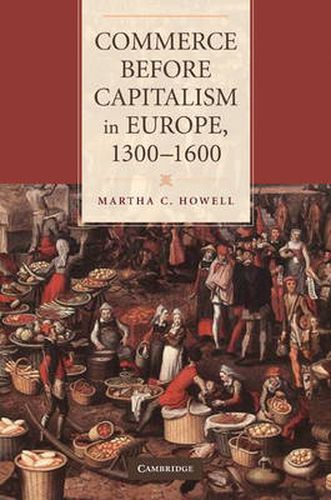Readings Newsletter
Become a Readings Member to make your shopping experience even easier.
Sign in or sign up for free!
You’re not far away from qualifying for FREE standard shipping within Australia
You’ve qualified for FREE standard shipping within Australia
The cart is loading…






Martha C. Howell challenges dominant interpretations of the relationship between the so-called commercial revolution of late medieval Europe and the capitalist age that followed. She argues that the merchants, shopkeepers, artisans, and consumers in cities and courts throughout Western Europe, even in the urbanized Low Countries that are the main focus of this study, were by no means proto-capitalist and did not consider their property a fungible asset. Even though they freely bought and sold property using sophisticated financial techniques, they preserved its capacity to secure social bonds by intensifying market regulations and by assigning new meaning to marriage, gift-giving, and consumption. Later generations have sometimes found such actions perplexing, often dismissing them as evidence that business people of the late medieval and early modern worlds did not fully understand market rules. Howell, by contrast, shows that such practices were governed by a logic specific to their age and that, however primitive they may appear to subsequent generations, these practices made Europe’s economic future possible.
$9.00 standard shipping within Australia
FREE standard shipping within Australia for orders over $100.00
Express & International shipping calculated at checkout
Martha C. Howell challenges dominant interpretations of the relationship between the so-called commercial revolution of late medieval Europe and the capitalist age that followed. She argues that the merchants, shopkeepers, artisans, and consumers in cities and courts throughout Western Europe, even in the urbanized Low Countries that are the main focus of this study, were by no means proto-capitalist and did not consider their property a fungible asset. Even though they freely bought and sold property using sophisticated financial techniques, they preserved its capacity to secure social bonds by intensifying market regulations and by assigning new meaning to marriage, gift-giving, and consumption. Later generations have sometimes found such actions perplexing, often dismissing them as evidence that business people of the late medieval and early modern worlds did not fully understand market rules. Howell, by contrast, shows that such practices were governed by a logic specific to their age and that, however primitive they may appear to subsequent generations, these practices made Europe’s economic future possible.